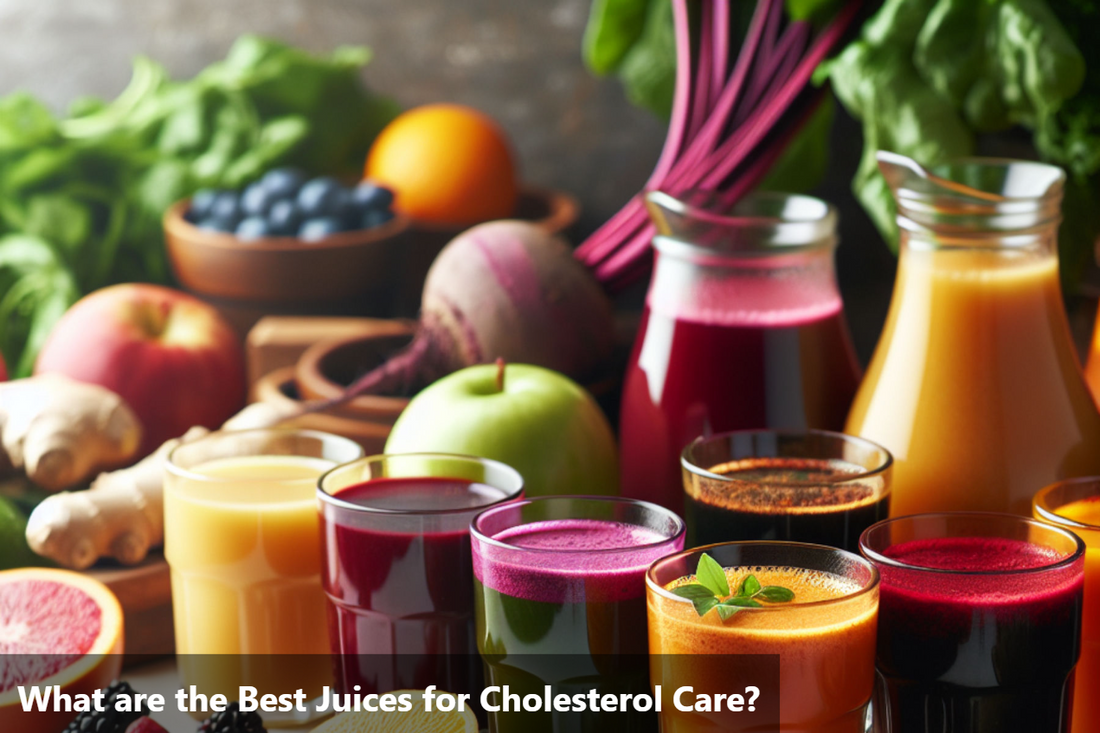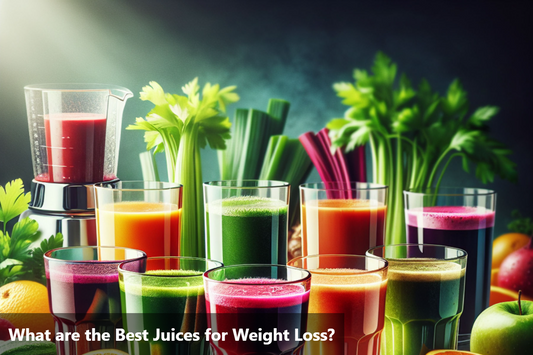Cholesterol management plays a vital role in our overall health, with diet being a key factor in maintaining optimal levels. One of the effective ways to tackle cholesterol issues is by incorporating juices into your daily routine. These juices not only taste refreshing but also offer numerous benefits to your cholesterol care regimen.
When it comes to quickly reducing cholesterol levels, juices are a convenient and delicious option. They can provide essential nutrients that support heart health and help in lowering cholesterol naturally. By including specific fruits and vegetables in your juicing recipes, you can target cholesterol reduction effectively.
Choosing the best juice for cholesterol control involves selecting ingredients like beetroot, apple, kale, and citrus fruits that are known for their cholesterol-lowering properties. These ingredients can be easily blended or juiced to create flavorful and wholesome drinks that contribute to your overall well-being.
Understanding Cholesterol
Cholesterol plays a crucial role in our health, but not all cholesterol is created equal. There are two main types: LDL (low-density lipoprotein) and HDL (high-density lipoprotein). LDL cholesterol is often referred to as "bad" cholesterol as it can build up in the walls of arteries, leading to heart disease. On the other hand, HDL cholesterol is known as "good" cholesterol as it helps remove LDL cholesterol from the bloodstream, reducing the risk of heart issues.
High levels of LDL cholesterol can have a significant impact on overall wellbeing, increasing the risk of heart attacks and strokes. It is essential to maintain a balance between LDL and HDL cholesterol for optimal heart health. With the right lifestyle changes, including a healthy diet and regular exercise, it is possible to manage cholesterol levels effectively.
Incorporating cholesterol-friendly juices into your diet can be a beneficial addition. Certain fruits and vegetables, such as beetroot, apple, kale, and citrus fruits, are known for their cholesterol-lowering properties. These homemade juices can provide essential nutrients while aiding in reducing cholesterol levels naturally.
How Juices Help in Cholesterol Care?
Rich in Antioxidants: Many fruits and vegetables used to make juices are rich in antioxidants like vitamin C, vitamin E, and polyphenols. These antioxidants help reduce oxidative stress and inflammation in the body, which are factors that contribute to the development of cardiovascular diseases, including high cholesterol.
High in Soluble Fiber: Some fruits and vegetables used in juices, such as apples, berries, carrots, and citrus fruits, are high in soluble fiber. Soluble fiber helps lower LDL (bad) cholesterol levels by binding to cholesterol in the digestive tract and removing it from the body before it can be absorbed into the bloodstream.
Source of Plant Sterols: Certain fruits and vegetables contain plant sterols, which are compounds that resemble cholesterol structurally. Plant sterols help block the absorption of dietary cholesterol in the intestines, leading to lower LDL cholesterol levels.
Promotes Weight Management: Drinking juices made from fruits and vegetables as part of a balanced diet can aid in weight management. Maintaining a healthy weight is essential for managing cholesterol levels, as excess body weight, especially around the waistline, can increase LDL cholesterol and triglyceride levels while lowering HDL (good) cholesterol levels.
Hydration: Staying hydrated is crucial for overall health, including heart health and cholesterol management. Drinking plenty of fluids, including juices, helps maintain proper blood viscosity, circulation, and cardiovascular function.
Alternative to Sugary Drinks: Choosing natural fruit and vegetable juices over sugary beverages like sodas, energy drinks, and sweetened teas can help reduce overall sugar intake. Excess sugar consumption is linked to obesity, insulin resistance, and dyslipidemia, all of which are risk factors for high cholesterol and heart disease.
Best Juices for Cholesterol Care
Juice |
Benefits |
|---|---|
Orange Juice |
Rich in vitamin C and flavonoids; helps lower LDL cholesterol and increase HDL cholesterol. |
Pomegranate Juice |
High in antioxidants; reduces oxidative stress and inflammation; improves cholesterol levels. |
Green Vegetable Juices |
Low in calories, high in fiber, vitamins, and minerals; support heart health and regulate cholesterol levels. |
Carrot Juice |
Contains beta-carotene, soluble fiber, and potassium; associated with lower cholesterol levels. |
Beetroot Juice |
Contains nitrates that improve blood flow; reduces LDL cholesterol and increases HDL cholesterol. |
Cranberry Juice |
Rich in antioxidants; reduces inflammation and oxidative stress; beneficial for heart health and cholesterol care. |
Tomato Juice |
High in lycopene, potassium, and vitamins C and E; lowers LDL cholesterol levels and supports heart health. |
Grape Juice |
Contains polyphenols like resveratrol; reduces LDL cholesterol oxidation and promotes heart health. |
Tips for Incorporating Cholesterol-Control Juices into Your Diet
To effectively integrate cholesterol-control juices into your diet, it is essential to understand when and how to consume them. Start your day by having a glass of fresh, cholesterol-reducing juice in the morning on an empty stomach. This allows your body to absorb the nutrients efficiently and kick-starts your metabolism for the day.
Consider incorporating these juices as mid-morning or afternoon snacks to curb unhealthy cravings and maintain steady energy levels throughout the day. Be mindful of balancing your juice intake with whole foods to ensure a well-rounded diet. Pairing juices with sources of protein and healthy fats can help stabilize blood sugar levels and prevent energy crashes.
For individuals with certain medical conditions like diabetes or gastrointestinal issues, it is crucial to consult with a healthcare provider before making significant changes to their diet, including the addition of cholesterol-care juices. It is recommended to monitor blood sugar levels regularly if you have diabetes and adjust juice consumption accordingly.
Juices and Cholestrol Care
When it comes to managing cholesterol levels, incorporating the right juices into your diet can make a significant difference. Firstly, by choosing the best juices for cholesterol control, such as beetroot, apple, kale, and citrus fruits, you can actively work towards reducing your cholesterol levels naturally. These juices are not only delicious but also packed with nutrients that support heart health. Secondly, the tips provided on how to incorporate cholesterol-friendly juices into your daily diet are essential. By understanding when to drink these juices, how to balance them with other foods, and being cautious if you have certain medical conditions, you can maximize their benefits.
Remember, while juices can be a helpful part of a cholesterol care routine, it is essential to focus on a balanced diet and lifestyle modifications for long-term heart health benefits. By making informed choices and taking proactive steps, you can support your overall wellbeing and reduce the risk of heart-related issues.
This Blog post is an initiative by DiabeSmart, to provide accurate and Nutritionist / Doctor approved information related to Diabetes. DiabeSmart is India's first Food brand designed specifically for Diabetics, that has been clinically tested on Diabetics and Pre-Diabetics to deliver 55% - 70% lower Sugar spikes. DiabeSmart is part of Lo! Foods - India's leading brand for Everyday Functional Health foods.








